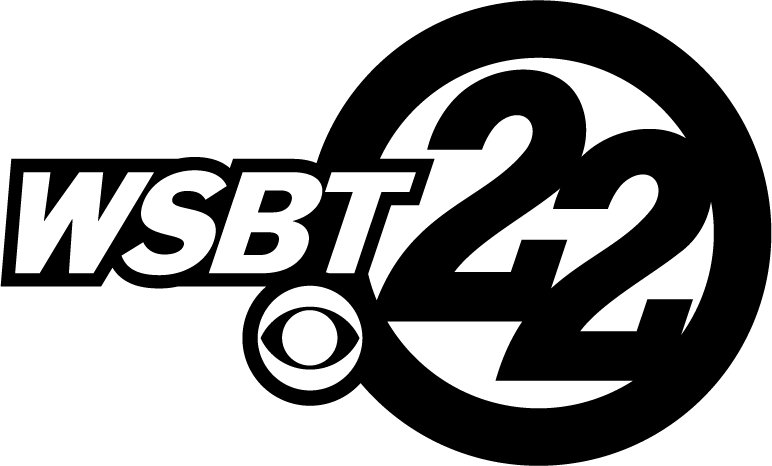Media Mentions
-
Winner of the 2024 Frontiers Planet Prize Discusses His Research in Sustainability Science
July 16, 2024
Jason Rohr, Galla Professor and chair of the department of biological sciences at the University of Notre Dame, is one of three winners of the 2024 Frontiers Planet Prize, a global scientific competition that celebrates breakthroughs in sustainability science.
-

Newsweek
Cosmic 'Timekeepers' May Have Brought Dark Matter to Light
July 15, 2024
Scientists may have detected evidence of dark matter lurking in the shadows of the universe using the help of incredibly fast-spinning neutron stars, according to new research.
-
Celebrating Transformational Science: Honoring the 2024 International Champions of the Frontiers Planet Prize
June 26, 2024
Influencing policy and legislation is also at the heart of the work of the third international champion, Professor Jason Rohr, from the University of Notre Dame, United States of America. Known for his interdisciplinary approach when exploring the complex interactions between environmental factors and biological systems, Professor Rohr turned his attention to Schistosomiasis, a parasitic disease transmitted through contact with contaminated freshwater and puts over 800 million people worldwide at risk of the disease. In his award-winning research A planetary health innovation for disease, food, and water challenges in Africa, published in Nature.
-
It’s a matter of life and death – but life is winning
June 19, 2024
Two moving investigations are now saving thousands of babies and young children
-
Local governments hand out fentanyl test strips, but they could be illegal in Indiana
June 06, 2024
Drug recovery experts say fentanyl and other test strips can save lives. They say confusion over whether the strips are legal negatively impacts overdose prevention.
-
He solved a math problem that stumped Stanford profs. Here's what became of a Bay Area prodigy.
June 04, 2024
Chronicle K-12 education reporter Jill Tucker wrote about Bay Area child prodigy Evan O’Dorney 13 years ago and never forgot his remarkable story. Amid coverage of this year’s national spelling bee and other academic awards, she tracked Evan down to find out how he’s doing.
-

NBC News
The Justice Department wants to 'break up Live Nation.' Taylor Swift fans are ready for it.
May 24, 2024
Swift fans are “very good at bonding together, using their own time and resources to solve problems,” said Jeff Harden, a political science professor at the University of Notre Dame.
-
Outsmarting Ovarian Cancer
May 08, 2024
As an undergraduate student at Clemson University, Sharon Stack became fascinated with the study of the chemical processes and molecular interactions that take place inside living cells.
Originally published at news.nd.edu.
-
Rohr Named U.S. Winner of Frontiers Planet Prize
April 22, 2024
The Frontiers Research Foundation has announced 23 national winners of the Frontiers Planet Prize, which celebrates scientific breakthroughs in the sustainability space. From the U.S., Jason Rohr was recognized for his innovative approach to disease, food, and water challenges. The National Academies led the review and recommendation of U.S. nominees for the prize.
-

South Bend Tribune
Photo gallery: Solar eclipse in South Bend. Were you at one of the viewing parties?
April 08, 2024
This is the solar eclipse Monday, April 8, 2024, at the watch party on the Irish Green at the University of Notre Dame in South Bend.
-

WSBT TV
Eclipse watch party at the Irish Green
April 08, 2024
An afternoon watch party at the University of Notre Dame was held for students, staff and the public to see the solar eclipse.
-

WNDU
Notre Dame hosts watch party for Great American Eclipse
April 08, 2024
The greatest show in the universe passed overhead, bringing local co-eds out of the class and onto the quad.
-

ABC57
University of Notre Dame is hosting eclipse-related talks and watch party
April 05, 2024
While the path of totality will not cross through any section of Michiana, the University of Notre Dame has a wide range of events both leading up to and on April 8.
-

ABC57
University of Notre Dame is hosting eclipse-related talks and watch party
April 05, 2024
Keith Davis, the director of the university's Digital Visualization Theater (DVT), is giving his eclipse education presentation called "Into the Shadow" on Friday, April 5, and Saturday, April 6.
Originally published at news.nd.edu.
-
Notre Dame professor talks science behind the Great American Eclipse
April 02, 2024
SOUTH BEND, Ind. (WNDU) - The countdown to the Great American Eclipse is less than a week away, and a large swath of Indiana will be in the path of totality. Here in South Bend, we’ll see a partial eclipse, but it is still the talk around town these past couple of weeks.
-

CNN
Nearly half of the tap water in the US is contaminated with ‘forever chemicals,’ government study finds
March 25, 2024
If PFAS is in 45% of US water systems, the country will have a lot of work to do, said Dr. Graham Peaslee, a professor in the Department of Physics and Astronomy and concurrent professor of chemistry and biochemistry who does PFAS research at the University of Notre Dame.
Originally published at news.nd.edu.
-

South Bend Tribune
Notre Dame professor to advance brain cancer research aboard International Space Station
March 22, 2024
A SpaceX launch Thursday afternoon aims to advance brain cancer scholarship by University of Notre Dame researchers by bringing an experimental study to the International Space Station. When it lifts off Thursday afternoon around 4:55 p.m. from Florida's Cape Canaveral Space Force Station, the SpaceX Dragon cargo spacecraft will carry the materials and methods for Notre Dame professor Meenal Datta's study on glioblastoma, an aggressive and incurable form of brain cancer.
Originally published at news.nd.edu.
-
New Test in the Works to Catch Defective Cancer Drugs
October 06, 2023
A team of researchers is developing a new way to test a vital cancer drug that has been sold around the world in poor-quality, contaminated or ineffective forms.
-

The New York Times
Mosquitoes Are a Growing Public Health Threat, Reversing Years of Progress
September 29, 2023
Such largess is unusual — and not a sustainable pathway for vector control research, said John Grieco, a professor of biological sciences at the University of Notre Dame who coordinates the multicountry spatial repellent trial, which is also running in countries including Mali and Sri Lanka.
Originally published at news.nd.edu.
-

NPR
Bangladesh has been effective at fighting malaria. Can it eliminate the disease?
September 21, 2023
In the heart of Dhaka, Bangladesh's thronging capital, deep inside a laboratory, Kasturi Haldar stares down the barrel of a microscope.
Originally published at news.nd.edu.